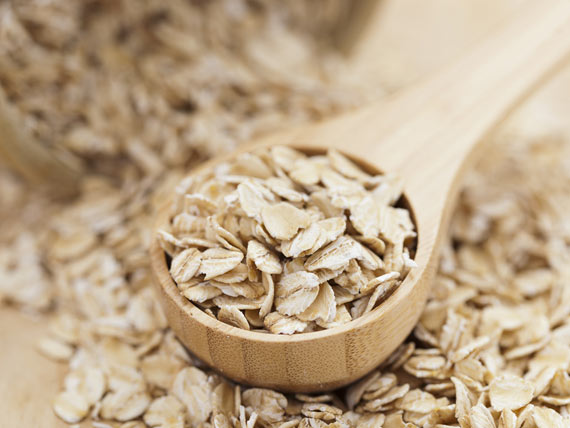
These days we often hear reports about dog foods that can harm our pets. In 2007, over one hundred dog food brands -- some even well known brands -- were recalled due to a tainted ingredient which was imported for China, making some dogs sick and killing others. More recently, salmonella has become a concern for various dog food items.
As responsible dog owners, we need to know how to read complicated dog food labels. Or better yet, feed our dogs with a healthy, well-balanced meal made at home.
So what is a healthy, well-balanced diet for your dog?
Whether you buy canned food from stores or prepare your dog’s meals at home, you have to ensure that the following ingredients are included in your dog's diet: protein, carbohydrates, and fiber.
The most important ingredient is protein. In the past, dogs primarily survived on a diet of meat. This ensured that they consumed large quantities of protein, essential for energy. Fortunately, your dog is not as picky as you are when it comes to the cut of meat or the part of the body the cut comes from. In fact, it is the cuts of meat that we are least likely to eat that are best for dogs and therefore, they cost much less at your local butcher or grocery store. Ask for green tripe (the lining of a cow’s stomach), liver, heart, kidneys; all of these parts are high in concentrated nutrients and form an important piece of your dog’s lifetime development. Eggs and legumes are other sources of protein easily found at the store.
While it is not needed in as large of a quantity as protein, carbohydrate is another ingredient that is essential to a dog's well-being. It is found in high concentrations in cereal grains such as rice, wheat, corn, barley and oats. Carbohydrates can be used in small amounts as fillers, or added in the form of green leafy vegetables like spinach, kale, celery, and broccoli, to name a few. Carrots are also beneficial. Along with being a great source of carbohydrates and fiber, they also contain vitamin A and Beta-carotene, which is good for eyesight. Fibers assist in moving waste through the digestive track, improving intestinal health. Easily digestible, or soluble, carbohydrates are excellent sources of fiber. This category is mainly comprised of fruits that are part of your diet, such as apples, pears, and oranges (but ask your vet which fruit are okay for your dog; some fruits are poisonous for dogs).
When looking for food products at the pet store, purchase those stamped by the Association of American Feed Control Officials (or AAFCO). While it is not foolproof, your closest guarantee to a safe food product is one that has been made in compliance with the AAFCO's strict guidelines for production and labeling.
What should you avoid?
Because some dogs have allergic reactions to certain food ingredients, just as we do, it would be impractical to try to list all the things that you must avoid. There is, however, a basic list of the foods that should not be given to dogs.
And remember the old adage: a dog is what it eats. So feed it a well-balanced diet and keep your buddy hearty and healthy.
 10 Things You Should Know Before Getting a Dog
Have you been dreaming of getting a dog ever since
10 Things You Should Know Before Getting a Dog
Have you been dreaming of getting a dog ever since
 The Hype of Hypoallergenic Pets
By Yahaira Cespedes
Allergy sufferers dread spring
The Hype of Hypoallergenic Pets
By Yahaira Cespedes
Allergy sufferers dread spring
 How Did My Dog Get Fleas and/or Ticks?
By Jennifer Kvamme, DVM
If you are a dog o
How Did My Dog Get Fleas and/or Ticks?
By Jennifer Kvamme, DVM
If you are a dog o
 Benefits of Oats for Dogs and Cats
By Randy Kidd, DVM, PhD
Oats are always at the to
Benefits of Oats for Dogs and Cats
By Randy Kidd, DVM, PhD
Oats are always at the to
 6 Exercises You Can Do With Your Dog
By Andrew Daniels
Man’s best friend m
6 Exercises You Can Do With Your Dog
By Andrew Daniels
Man’s best friend m
Copyright © 2005-2016 Pet Information All Rights Reserved
Contact us: www162date@outlook.com